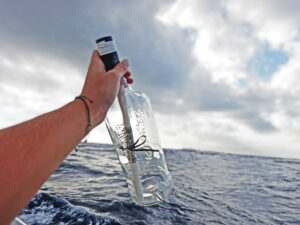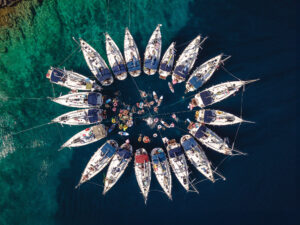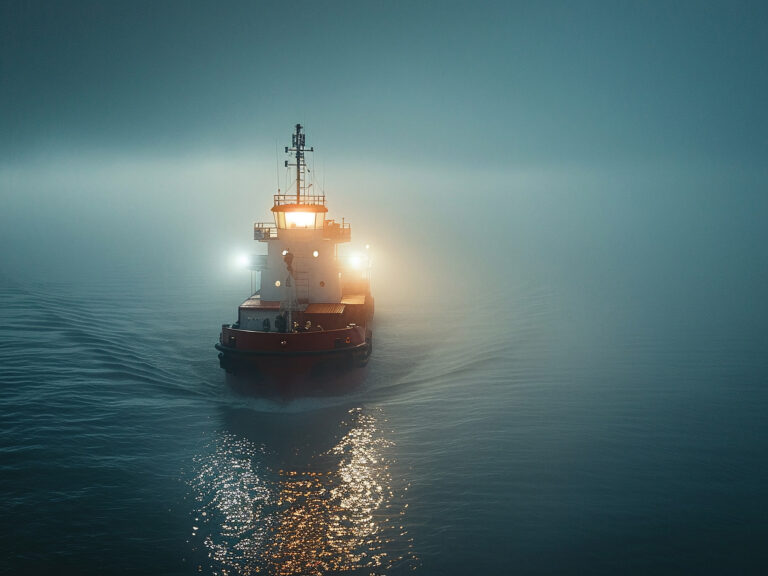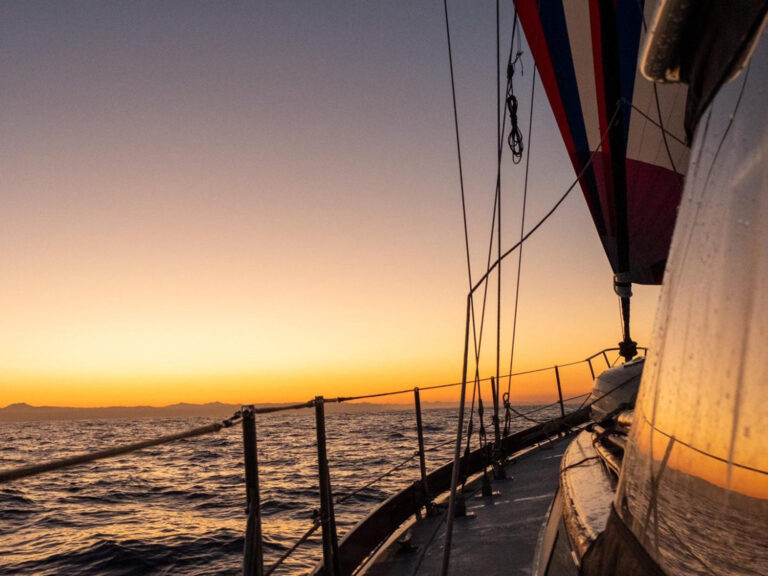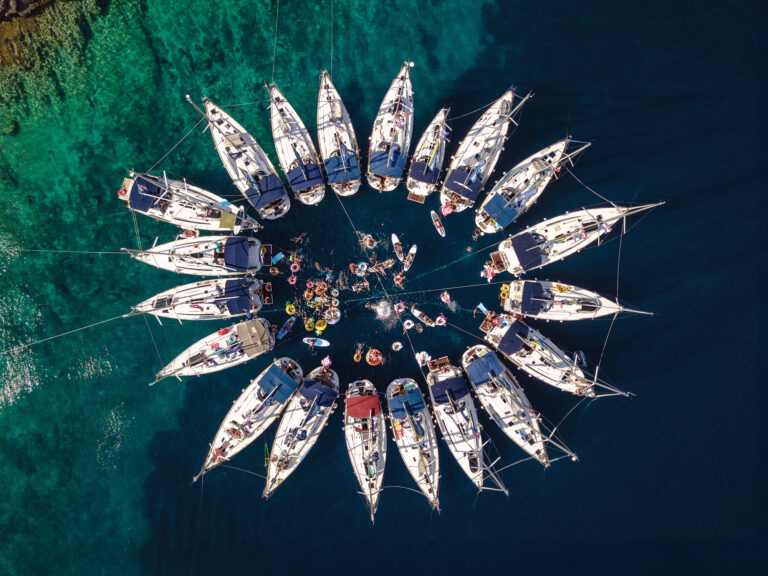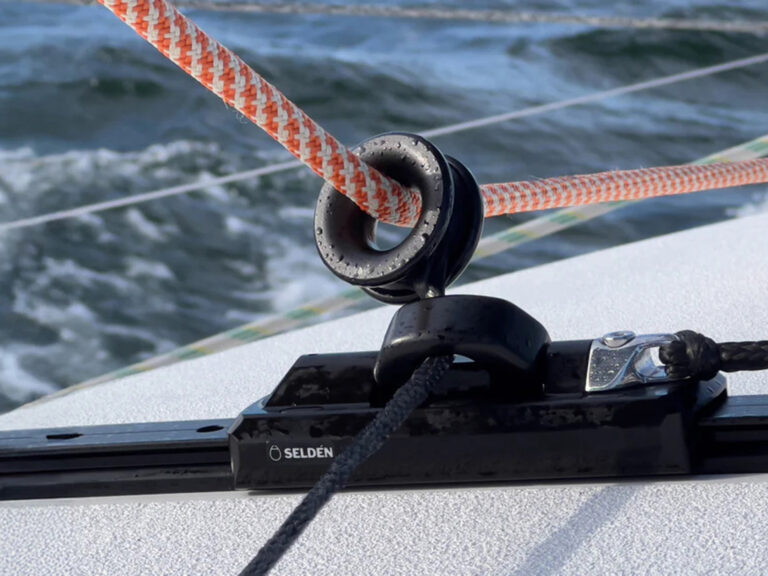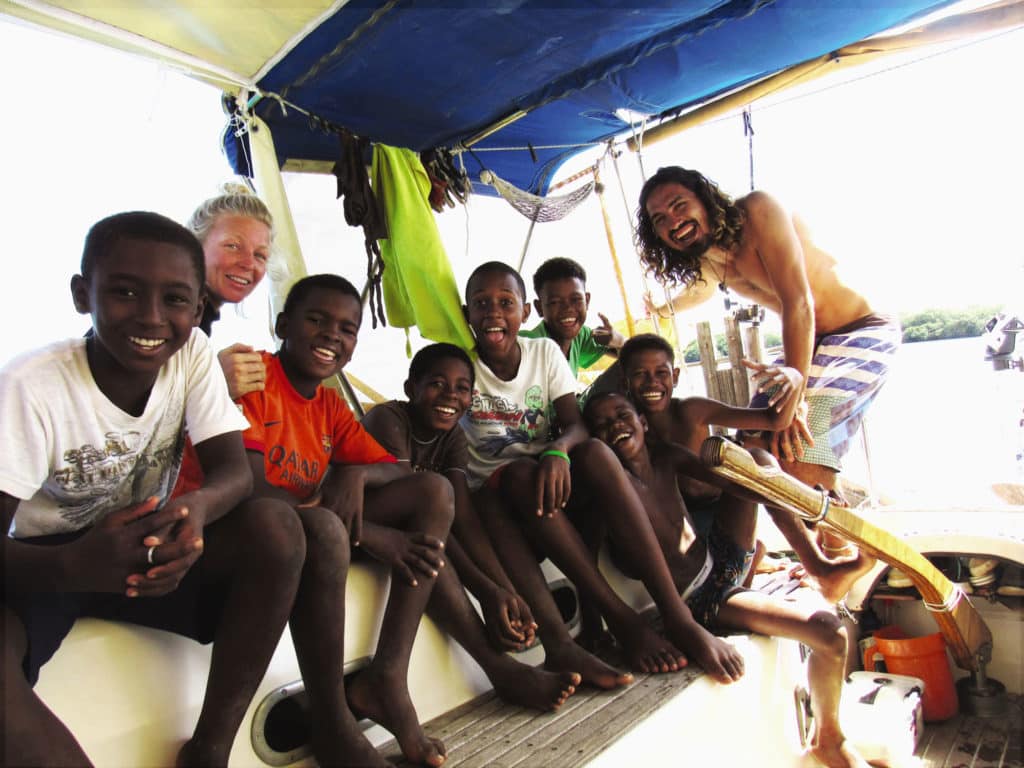
In 2015, Martin Manrique and Carlien Pels arrived in Curaçao, determined to change their lifestyles. The the Argentinian and Dutch newlyweds had left their promising engineering careers, families and friends on dry land, intent on making a sailboat their permanent home.
“We had both finished our studies, so we said f—k it, let’s see if we can do it. The challenge was exciting,” says Manrique, an Argentinian National sailing coach. “We loved the idea of adventure and sea exploration, and the freedom it could give you.” Yet, finding the perfect boat proved challenging.
They finally found the one, however, a 37-foot fiberglass Apollo 12, built in Greece by Dromor Yachts. Its beautiful wooden cabin would be perfect for chartering, they thought. The seller, a widow who had sailed it across the ocean with her husband, had moved back to Australia. Manrique purchased it via a broker for just $10,000. “You think it’s so cheap, but you don’t know what you’re getting into. You find cracks, holes, things to fix, and you think, can I even cross an ocean with this?” Manrique says. They spent the next six months and another $6,000 making repairs.
Bought on the anniversary of the passing of Pels’ mom, the couple decided to name their boat Anna-Laura after both of their mothers. “It was a good name because our boat was like a grandma, about to pass away every time we went sailing,” Manrique says with a laugh, adding that the old boat came adorned with velvet red curtains that reminded him of his grandmother’s kitchen.
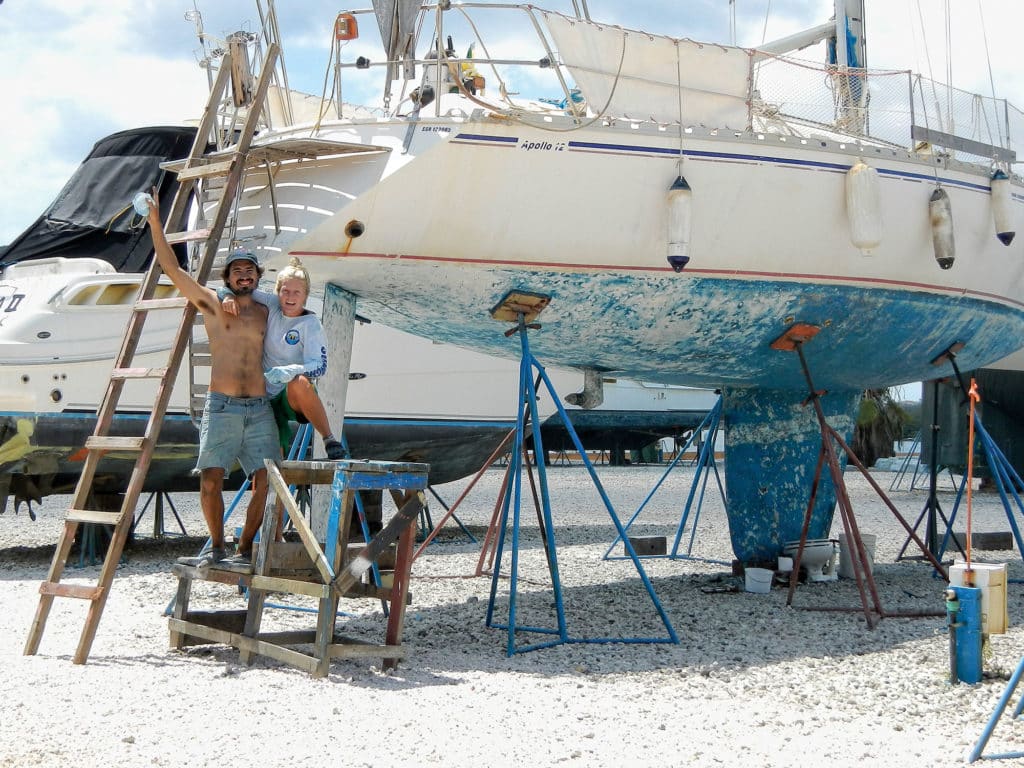
The cracks began to show as soon as they set sail from Curaçao. Manrique was glowing, sailing Anna-Laura for the first time to a nearby island. He trimmed the mainsail, powering upwind, cracking the keel over the waves like the dinghies back home. With no land in sight, Pels came up on deck. “I think we’re sinking,” she said. The cabin was knee-deep in water, and the couple had no idea where it was coming from. They began to bail.
After an hour, Anna-Laura thankfully wasn’t taking on more water. A closer examination revealed the sealant that glued together the deck and the hull was coming apart from pounding in the waves. “It was not going to sink because we bailed the water faster than it could get in. But we had to reseal the boat. We decided to never sail upwind again. We would wait for the wind to change in the direction we wanted to go. We took grandma for a run, and she couldn’t handle it,” Manrique jokes. Pels, shaking her head and smiling, notes, “It wasn’t very funny at the time.”
For the next four years, the couple sailed and visited Caribbean locales while finding temporary work as sailing and watersports instructors. The community of sailors they met along the way became some of their closest companions, trading parts or helping with repairs. Pels explains the unspoken bond between sailors succinctly: “You help people because you will need someone’s help too.”
Equipped with a speargun, a water-filtration system, money from their sailing clinics, and supplies purchased at their various ports of entry, the couple cobbled together a living. After a certain point, the sea became home and the land unknown.
While docked in a village on the north coast of Colombia, a young boy named Juan Carlo would change the couple’s course forever. “This kid just knocked on our door and asked us if we could teach him how to sail,” Manrique says. “The kid was a natural. He just grabbed the rudder and sailed on instinct.”
More students and lessons followed. The couple’s stints teaching sailing would take them to a remote part of Honduras and further cement the idea that would eventually become their nonprofit, Make Them Sailors. “We wanted to give these groups of kids the resources to make a living out of sailing like we did,” Manrique says. “We had a network of sailors with old equipment that we could donate to different schools around the Caribbean.” Their network came through, finding used boats, rigging, and sails to give to groups of young kids in Colombia, Honduras, and elsewhere.
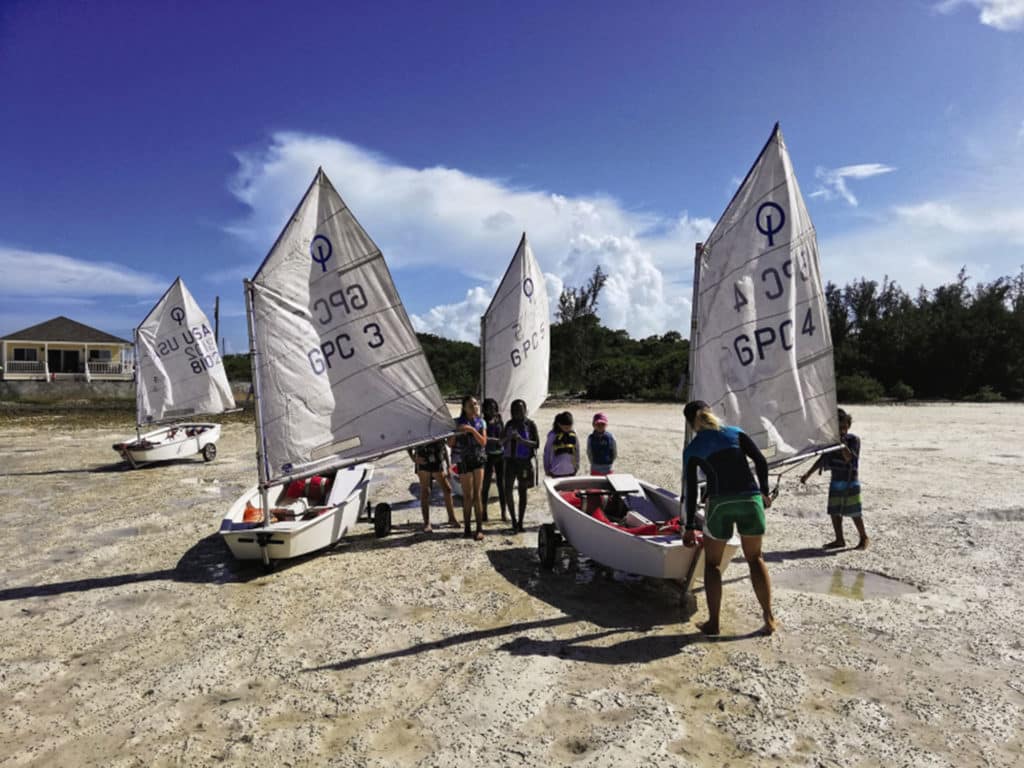
In 2019, Manrique and Pels left Honduras to pick up an Optimist dinghy from a youth regatta in Miami where they had organized a donation day for the children back in Honduras. As they rounded the western point of Cuba, Pels fell ill. Little did they know, she was pregnant and was experiencing crippling bouts of morning sickness. Unable to dock in Cuba due to international bans, Manrique sailed solo for 150 miles to the Florida Keys to find a doctor for his wife.
Docking in the Keys, a doctor brought them the news: It was twins. The couple named them Sukie Bonnie and Cleo Marie after the famous female pirates Anne Bonny and Mary Read. “Once the twins were born, we just couldn’t go back to the boat. It was impossible,” Manrique says. They had to sell the Anna-Laura.
Then, a week after the babies were born and the boat was sold, an old sailing companion from Nassau called Manrique. He asked him to bring his sailing talents down to the Bahamas to open a school. Another case of a sailor helping a sailor. In February 2020, the family moved to Eleuthera to open their own sailing school.
RELATED: Learning to Sail
“We’re officially teaching a new generation of kids how to sail,” Manrique beams. “Kids here don’t have education past primary school. The sailing school provides them structure.” Meanwhile, Make Them Sailors continues to collect and donate sailing materials for underprivileged, aspiring sailors. Founded in the Netherlands, the nonprofit now supports sailing schools in Buenos Aires, Montevideo, Paraguay, Chile and the Bahamas. They are currently making a blueprint for how to open new sailing schools, collect gear, and raise money for sailing scholarships.
For Manrique and Pels, they never could have imagined where their boat would carry them. The afternoon waned as Pels brought burgers out to their beachfront porch filled with children. “Some moments you love the ocean life, and other moments are complete nightmares,” Manrique muses. “Living with passion and sharing that passion with others is the only way we know how to live. The lows are just part of the excitement.”
Wes Morton is a writer and media professional based in Los Angeles. You’ll find more of his work and writing at creativstrategies.com


